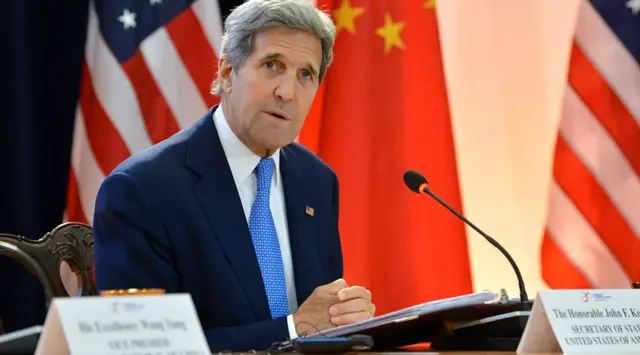By APD writer Wang Peng
Liu He, a member of the Political Bureau of the Communist Party of China (CPC) Central Committee, visited the United States from Feb 27 to March 3.
Event: Liu’s widely expected journey to US
Liu’s visit has attracted worldwide media attention. It is not only for his position as the director of the General Office of the Central Leading Group for Financial and Economic Affairs, who just finished his journey to the World Economic Forum Annual Meeting 2018 in Davos spotlighting China’s world view in an era of uncertainty, but also the international concerns over the deteriorating China-US ties in both security and trade, which, as many international observers commented, is largely due to the U.S. President Donald Trump’s continuous introduction of increasingly hawkish China policy.
As such, it is not strange that Liu has been widely regarded as an “urgently needed firemen” to put out the “fire” of upcoming trade war and, once again, tried to promote the co-existence of the two giants living around the Pacific Ocean.
Problem: upcoming trade war?
Liu’s mission is candid and constructive; as what China wants, subjectively, is beneficial cooperation on the basis of equality and mutual respect. However, the objective situation is not optimistic.
Years ago, the well-known eminent Harvard scholar Graham Allison explained why Thucydides’ trap is the best lens for understanding the most critical foreign tensions, especially for the increasing rivalry between the rising China and the hegemony America. Different from Allison’s concerns over and predictions of the upcoming US-China conflicts in strategy and security, now global media seem to be witnessing the rise of an economic version of Allison’s ‘Thucydides’ trap’ – a titanic war between the first and second economy in the world.
In November 2017, Trump has won a huge order worth more than 250 billion US dollars from China through his meeting with Chinese President Xi. He came back to the White House Press Conference with great elation, hard to hide. However, just several days later, when the Chinese people, as well as the world were still immersed in easing essential bilateral ties, the Trump Administration broke the peace by issuing a series of bills and statements such as refusing to recognize China’s market economy status (MES), signing the bill of 301 & 232 investigation, the Committee on Foreign Investment in the US (CFIUS) putting sand on the wheels of Chinese foreign investment in America, slandering China as the currency manipulator, levying punitive tariff on Chinese washing machines and solar panels. Now, the Chinese steel and aluminum industry becomes another victim.
In such context, as the international media is worried, coinciding with Liu’s visit, the US side let slip that it would plan on imposing heavy tariffs on steel and aluminum imported to the US. Many countries have expressed their dissatisfaction with such move, or even planning their counterattack measures. Thus, people are more wondering China’s reaction.
Hereto, as Chinese Foreign Ministry spokeswoman Hua Chunying said at the regular press conference on March 1, Liu He had constructive and helpful consultations with US Treasury Secretary Steven Mnuchin, White House National Economic Council Director Gary Cohn and trade representative Robert Lighthizer. The two sides had exchanges on key issues such as bilateral economic and trade relations, which would create necessary conditions for in-depth cooperation going forward.
Solution: give up lose-lose confrontation; cooperation is only viable way for both China and America
After Trump came to power with his threat of a ‘trade war’ against China, Beijing has repeatedly stated its position with regard to US investigations and trade remedy measures. China’s cooperative stance is very clear despite the U.S. has already launched over a hundred anti-dumping and countervailing measures on most imported steel and aluminum products, overprotecting its domestic products.
In recent years, the global economic recovery has been sluggish and the steel and aluminum industries in various countries are facing difficulties. At present, the foundation of the global economic recovery is still not solid. All countries should cope with the situation together and work with each other to explore solutions instead of taking trade restrictions unilaterally and profiting oneself at the expense of its neighbor. As a result, China has urged the US to exercise restraints in using trade protection tools and to comply with multilateral trade rules so as to make contribution to the international economic and trade order. Only cooperation can pave the viable path for both China and America, as well as the rest of the world.
Now, Director Liu He has exchanged candidly with the US side on key issues in bilateral economic and trade relations during the visit. We hope his visit may come as a beacon light to end the long night of uncertainty and restart a new era of China-US economic ties.
Wang Peng is the Research Fellow at the Chahar Institute and China Institute of Fudan University.
(ASIA PACIFIC DAILY)
 简体中文
简体中文

